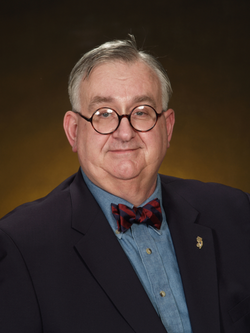During the first week of March we learned of the disastrous highway incident in here a firefighter was struck by a car while preparing to assist the motorists injured in a bad-weather motor vehicle accident. The result of this tragic incident was the fact that the firefighter lost both of his legs.
During my reading and rereading of the articles on this tragedy, I was struck by the continual use of the phrase, "…a routine call." Time and again I have been bothered by the fact that people in the fire, police, and communities are continually being killed and injured while operating at "routine calls."
Jack Sullivan, our Emergency Response Safety Institute Training Director, also picked up on this repeated use of the phrase, "routine call.'" He went me one better though. He pointed out in an email to me that the same phrase was used more than a decade ago to describe the death of a fire department associate on the Pennsylvania Turnpike.
It was the sad event in that served to motivate Jack to make an in-depth study of the issue of highway safety. As a matter of fact Jack has used the term "It was just a routine call" as the subtitle for his training program based on the incident.
In his email to me he stated that, "…there is no such thing as a routine call anymore." Perhaps that should be the title of our next campaign here at Respondersafety.com. Perhaps we should begin to push the idea that we can no longer go about our jobs in the police, fire, and world with the mindset that there are two types of calls: routine and non-routine.
There is a solid basis for this. I have often heard the old chestnut that, "familiarity breeds contempt." I am sure that you have also heard this one bounced off of the walls of your station time and again. My take on this phrase may be different than yours.
What I usually see involves a situation where we all seem to do the same things over and over again without any problems. We get so comfortable with things that we fail to keep an eye out for the exceptional and extraordinary. Many times in this column I have written about things you should not do. Maybe I should have phrased that writing a bit differently.
Perhaps what you and I should do is be sure we are constantly monitoring our environment. This is what many people have come to call situational awareness. We should be looking at the situation with a critical eye. We should be monitoring the environment and checking the various factors that are impacting us. Bad things happen more often to people who fail to pay attention to the world around them.
Let me share an example of this with you. This means that if you are out on the highways of your community you need to constantly be monitoring the traffic, and the situation around you. Let offer a few questions you might wish to ponder:
- Is the traffic volume heavy?
- Is the traffic zooming past you or crawling by?
- Is your vehicle parked correctly? (We have lots of downloadable educational offerings to help you with that)
- Have you created a proper highway safety corridor? (We have lots of downloadable educational offerings to help you with that)
- Are you and your associates wearing the proper retro-reflective public safety highway vests?
- What is the weather impact on your operations?
If we are to change the numbers of people being injured on the highways, we need to change the manner in which we operate. I want you to think about this as you work to review and modify your highway safety SOP's, training programs, and personal approach to doing our jobs.
If we fail to change, we will be condemned to repeat the errors of the past. My friends, it really is that simple.


